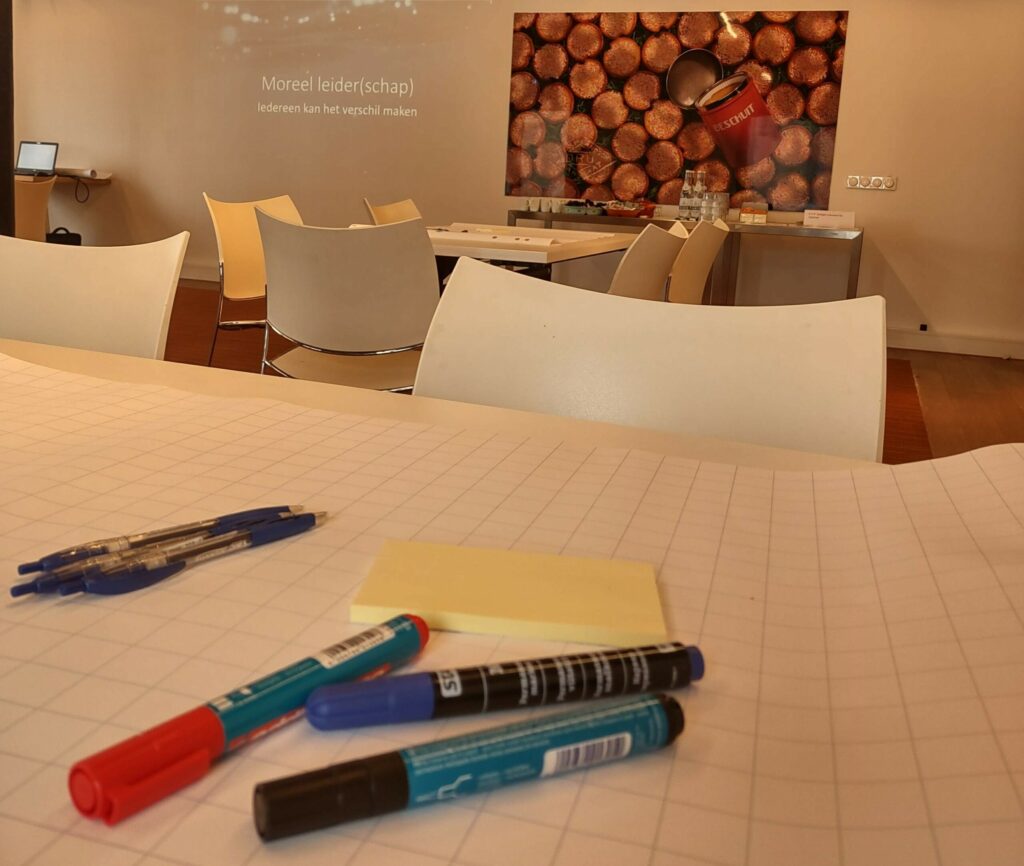We strive to adhere to a vision that may occasionally clash with the law, which presents a challenge for us. We are eager to develop a method of moral judgment formation among professionals that aligns with our vision
In the case of Stoer, as an organization providing income and career support, they operate within the framework of the Participatiewet (Participation Act). However, their vision focuses on the individual’s work potential rather than solely adhering to the legal requirements set by the government. This often presents a dilemma of choosing between different “goods.” What is good for an individual may not necessarily be good for society as a whole. How can you navigate this decision-making process and form a moral judgment that is embraced both within and outside the organization, with actions that are effectively implemented?
Moral deliberation understands that there is no fixed or predetermined answer
The headline may indeed require reading it twice. That is exactly what we have done with this “bold” problem. At first glance, we immediately thought of a moral deliberation. We teach employees the skills necessary for that, and then it will naturally succeed… However, in a moral deliberation, you also want to truly experience the situation, the case, firsthand. That’s why we pause and take a second thought… The significant challenge in moral judgment formation among professionals is also having the courage to slow down, to request time to step back and simultaneously develop a sense of the situation…
Therefore, let’s head to the office of Stoer at the beautiful DRU Industriepark in Ulft for a conversation. This way, we can truly understand each other and, just like in a moral deliberation, bring everything that is at play to the surface. That is why a moral deliberation understands best that it is not predetermined.

Here are four steps to promote skillful and secure moral judgment formation among professionals
By following these four steps, organizations can cultivate a culture that values ethical judgment and empowers professionals to make well-informed and morally sound decisions in their professional roles.
- Strengthening autonomy and proactivity
- Holding moral deliberation
- Reflection / retrospection on judgment
- Telling the moral story and demonstrating leadership
The four steps are divided across six training sessions. Some components are spread out over multiple sessions, while others may reappear periodically. The first and last steps are included to ensure that everyone has the space and willingness to exercise moral judgment as professionals and be accountable for it afterwards.
A continuing moral deliberation
The program aims to continuously train the skills, even outside of formal training sessions. For this purpose, a set of assignments has been developed for participants to work on in dedicated project groups. Prior to the program, the groups themselves have chosen a case on which they want to build a comprehensive understanding, judgment, and action plan for change throughout the program. The image at the top of the page was the calm before the storm, as we know that it will never be quiet again due to the numerous (moral) conversations among these professionals.

